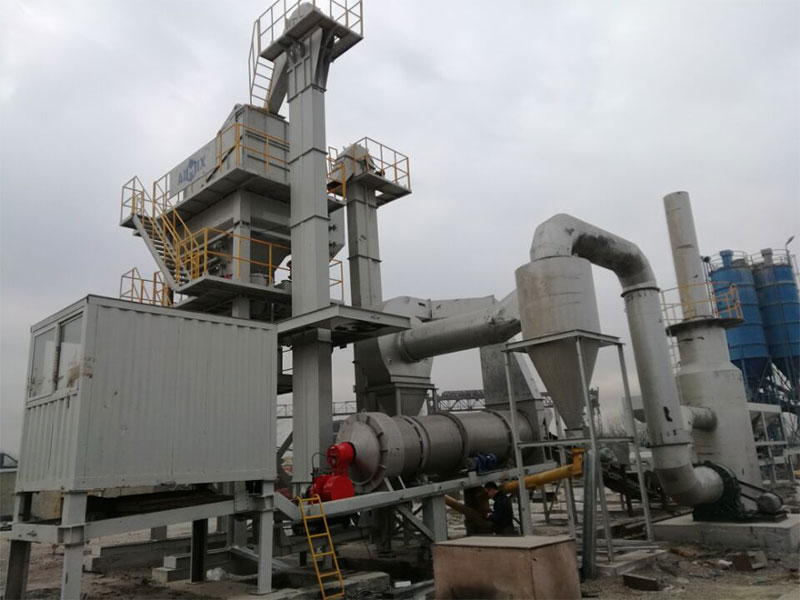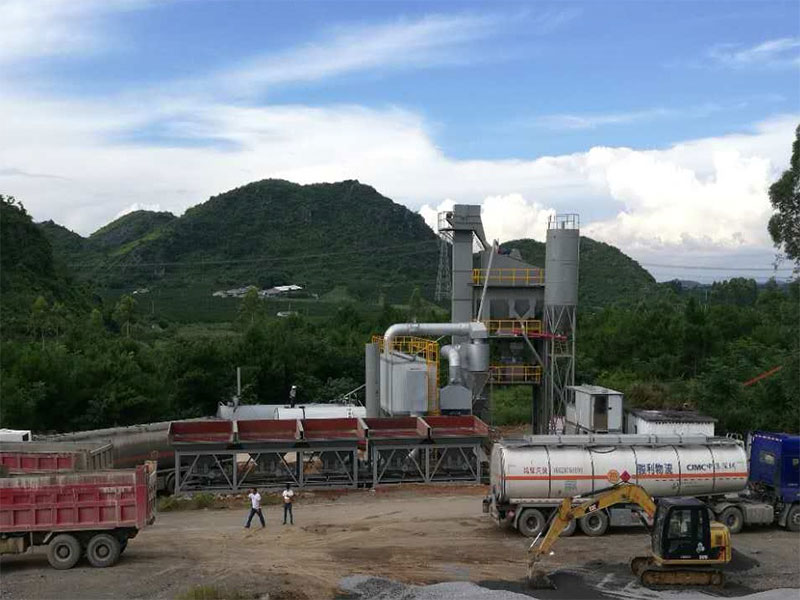Asphalt mixing plants are critical components in the construction industry, responsible for producing the asphalt mixture used in various road paving and infrastructure projects. To maintain optimal performance and productivity, it is essential to ensure the smooth operation of asphalt mixing plants.
Proper Maintenance Practices
Regular maintenance is paramount to the smooth operation of stationary asphalt mixing plant. Implementing a proactive maintenance schedule helps identify and address potential issues before they escalate into costly breakdowns. Key maintenance practices include:

Routine inspections of equipment, including the drum, burners, conveyors, and motors, to detect signs of wear or damage.
Lubrication of moving parts and components to reduce friction and prevent premature wear.
Cleaning of dust and debris accumulation in the plant’s components to maintain optimal performance and efficiency.
Calibration of sensors, controls, and measuring devices to ensure accurate asphalt mixture production and quality.
Operator Training and Education
Well-trained operators are essential for the smooth operation of asphalt mixing plants. Providing comprehensive training and education ensures that operators understand the plant’s functionalities, safety protocols, and best practices. Training programs should cover:
Proper operation and control of the mixing plant, including startup, shutdown, and adjustment procedures.
Understanding of asphalt mixture specifications, quality control measures, and production requirements.
Safety protocols for handling hot asphalt materials, operating heavy machinery, and preventing accidents or injuries.
Troubleshooting techniques for identifying and resolving common issues encountered during asphalt batch mixing plant operation.
Effective Monitoring and Control Systems
Implementing advanced monitoring and control systems enhances the efficiency and productivity of asphalt mixing plants. Modern control systems offer real-time monitoring of critical parameters, enabling operators to make timely adjustments and optimize plant performance. Key features of effective monitoring and control systems include:

Automated process control for precise regulation of aggregate feed rates, temperature levels, and asphalt binder content.
Integration of sensors and instruments to monitor temperature, moisture content, and production rates throughout the mixing process.
Data logging and reporting capabilities to track production metrics, identify trends, and make informed decisions for process optimization.
Remote monitoring and diagnostics for proactive troubleshooting and maintenance scheduling, minimizing downtime and maximizing uptime.
Proper Material Handling and Storage
Efficient material handling and storage practices are essential for the smooth operation of asphalt plant mobile. Properly storing and handling raw materials, including aggregates, asphalt binder, and additives, ensures consistent quality and performance of the asphalt mixture. Key considerations include:
Stockpiling aggregates in designated storage bins or silos to prevent segregation and ensure uniform feed rates during production.
Monitoring and controlling moisture levels in aggregates to optimize asphalt mixture consistency and workability.
Storing asphalt binder in insulated tanks or containers to maintain temperature stability and prevent premature aging or degradation.
Proper handling and dosing of additives, fillers, and recycled materials to achieve desired asphalt mixture properties while minimizing waste and environmental impact.
Environmental and Regulatory Compliance
Compliance with environmental regulations and industry standards is integral to the smooth operation of asphalt mixing plants. Adhering to emissions limits, noise regulations, and environmental best practices minimizes the plant’s environmental footprint and ensures regulatory compliance. Key measures include:
Implementing pollution control technologies, such as baghouse filters and scrubbers, to capture and mitigate emissions from plant operations.
Conducting regular emissions monitoring and testing to verify compliance with air quality standards and permit requirements.
Implementing noise abatement measures, such as sound barriers and acoustic enclosures, to minimize noise pollution in surrounding communities.
Implementing best practices for waste management, recycling, and resource conservation to reduce environmental impact and promote sustainability.
Conclusion
In conclusion, ensuring the smooth operation of asphalt mixing plants requires a combination of proper maintenance practices, operator training, effective monitoring and control systems, proper material handling and storage, and environmental compliance measures. By implementing these strategies and best practices, hot drum mix plant operators can optimize performance, minimize downtime, and maximize efficiency, ultimately delivering high-quality asphalt mixtures for road paving and infrastructure projects. Smooth operation not only enhances productivity and profitability but also promotes safety, environmental stewardship, and long-term sustainability in the construction industry.